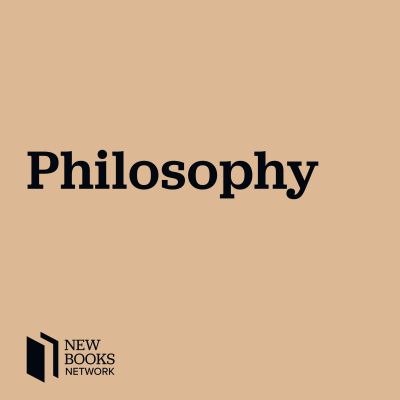Interview with Philosophers about their New Books Support our show by becoming a premium member! https://newbooksnetwork.supportingcast.fm/philosophy
Gesamtlänge aller Episoden: 16 days 23 hours 34 minutes
Jakob Hohwy, “The Predictive Mind” (Oxford UP, 2014)
The prediction error minimization hypothesis is the first grand unified empirical theory about how the brain implements the mind. The hypothesis, which is as bold as it is controversial, proposes to explain the mind via one core mechanism: a process of...
Mark Alfano, “Character as Moral Fiction” (Cambridge UP, 2013)
According to a longstanding tradition in ethical theory, the primary subject of moral evaluation is the person, or, more specifically, the person’s character. Aristotle stands at the head of this tradition,
Melinda B. Fagan, “Philosophy of Stem Cell Biology: Knowledge in Flesh and Blood” (Palgrave Macmillan, 2013)
Philosophy of science has come a very long way from its historically rooted focus on theories, explanations, and evidential relations in physics elaborated in terms of a rather mythical “theory T”. But even in philosophy of biology,
Kristoffer Ahlstrom-Vij, “Epistemic Paternalism: A Defence” (Palgrave Macmillan, 2013)
Many of our goals and aspirations in life depend upon our epistemological capabilities. Our attempts to do the right thing or live a good life can be greatly hampered if we are unable to form true beliefs and resist false ones. Consequently,
Adrienne Martin, “How We Hope: A Moral Psychology” (Princeton UP, 2013)
From political campaigns to sports stadiums and hospital rooms, the concept of hope is pervasive. And the story we tend to tell ourselves about hope is that it is intrinsically a good thing — in many ways we still tend to think of hope as a kind of vir...
Josef Stern, “The Matter and Form of Maimonides’ Guide” (Harvard UP, 2013)
The medieval Jewish scholar Moses Maimonides’ most famous work, The Guide of the Perplexed, has been interpreted variously as an attempt to reconcile reason and religion, as a guide to philosophers on ruling the community while concealing the truth,
David Edmonds, “Would You Kill the Fat Man?” (Princeton UP, 2014)
The trolley problem is a staple of contemporary moral philosophy. It centers around two scenarios involving a runaway trolley. In the first, a trolley is barreling down a track without any brakes; off in the distance five people are tied to the track...
Sarah Pessin, “Ibn Gabirol’s Theology of Desire: Matter and Method in Jewish Medieval Neoplatonism” (Cambridge UP, 2013)
Neoplatonists, including the 11th century Jewish philosopher-poet Solomon Ibn Gabirol, are often saddled with a cosmology considered either as outdated science or a kind of “invisible floating Kansas” in which spatiotemporal talk isn’t really about spa...
Joseph Carens, “The Ethics of Immigration” (Oxford UP, 2013)
It is commonly assumed that states have a right to broad discretionary control over immigration, and that they may decide almost in any way they choose, who may stay within the territory and who must leave.
Michael Weisberg, “Simulation and Similarity: Using Models to Understand the World” (Oxford UP, 2013)
In 1956 and 1957, the U.S. Army Corps of Engineers decided to test a plan to dam up the San Francisco Bay in order to protect its water supply: they built a 1.5 acre model of the Bay area in a warehouse, with hydraulic pumps to simulate tides and river...
